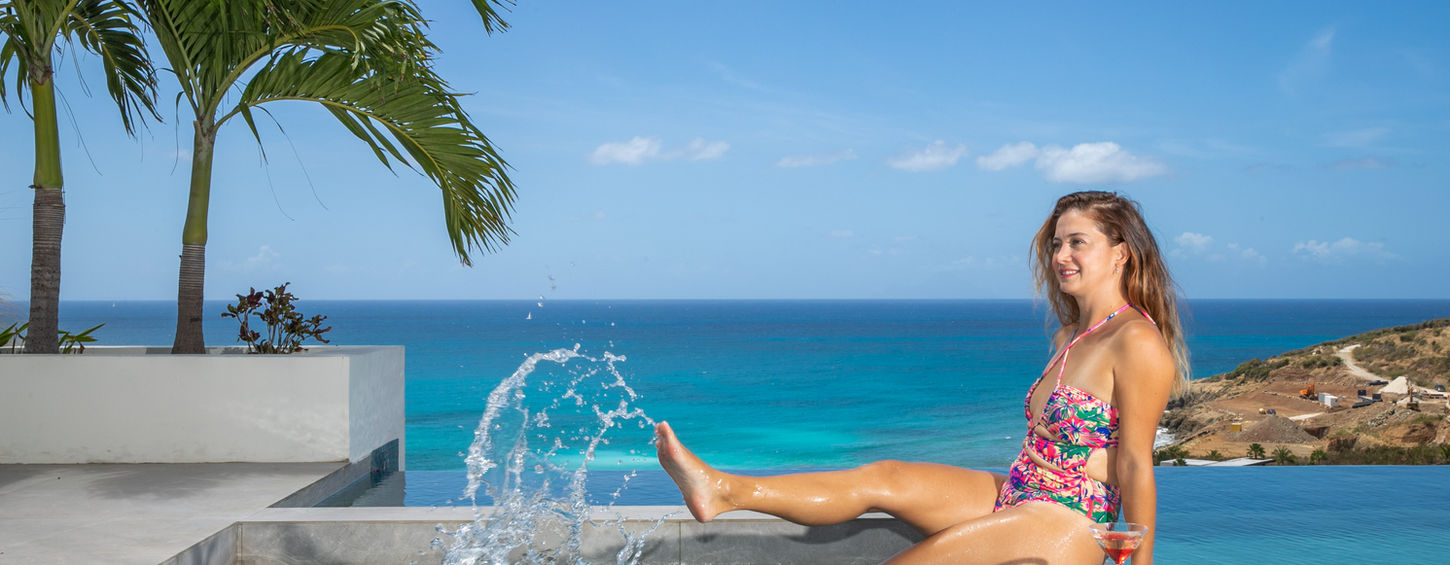VACCINATIONS
No vaccinations are required for travelers to St. Martin.
SUN PROTECTIONS
Located between the Tropic of Cancer and the Equator, St. Martin gets full sun. High-SPF sunscreen or a total sunblock is recommended for those who aren’t used to the intense Caribbean sun. Sunglasses with 100% UV protection and a hat are also highly recommended.
DENGUE FEVER
Dengue fever is a virus transmitted by the Aedes mosquito (Aedes aegypti in the Caribbean). Symptoms include high fever, headache, body aches, and weakness, which may last for several weeks. Symptoms appear two to seven days after a bite from an infected mosquito. Dans la majorité des cas, la dengue ne présente pas de complications.. Nevertheless, because the platelet count drops when infected with Dengue, there is a risk of hemorrhage. Whenever in doubt, consult a physician and avoid taking aspirin or anti-inflammatories. Avoid mosquito bites by using mosquito nets, wearing long clothing, and using insect repellents. Prevent mosquitos from multiplying by clearing out any potential breeding areas (namely stagnant water) inside and outside the house.
Never forget that mosquitos are part of the island.
POISONOUS PLANTS
Some plants can cause severe allergic reactions. One in particular is the manchineel tree (from the Spanish “manzana”, meaning apple). The manchineel, which is two to five meters tall, looks like an apple tree and is found in dry, sandy soils, especially along St. Martin’s beaches. Its leafy branches create shade, but beware, its fruit is highly poisonous. Contact with any part of the manchineel can cause severe burns. Do not shelter under the manchineel when it is raining, as the sap and fruit are extremely toxic. As a general rule, avoid eating the fruit of any tree on the island until you can consult an authority about whether or not it is safe to eat.
CIGUATERA POISONING FROM FISH
Certain fish, particularly reef fish, contain toxins that may, if eaten, cause uncomfortable symptoms (itching, numbness, dizziness) or even sometimes serious illness (paralysis and sudden drop in blood pressure). This is known as ciguatera, locally known as “gratte”, meaning itch in French. Avoid eating fish until you can consult an authority on its safety, especially if you have caught the fish yourself. The larger the fish (more than one kilo), the higher the toxin concentration and the more dangerous.
MEDICAL SERVICES AND EMERGENCIES
The medical system is identical to that in France, so all common medications are available on the island Important phone numbers in St. Martin Louis Constant Fleming Medical Center of Saint Martin, Concordia, Marigot – Emergency: +590 590 52 26 29 / Reception: +590 590 52 25 25 General Emergency/S.A.M.U.: 15 Police Department: 17 Fire Department: 18 Erick Ambulances: +590 29 29 34 Ambulances des Îles du Nord: +590 690 29 08 11 Local police, Concordia: +590 52 21 90 Local police, Hope Estate : +590 590 52 35 95 French Red Cross: +590 590 87 86 50 Territorial police: +590 590 29 56 22 or +590 590 29 56 23 Border police, Marigot: +590 590 87 57 13 S.N.S.M. St. Martin (sea rescue): Emergency: +590 690 76 75 00 – Station telephone: (590) 590 29 20 46 CROSS AG (sea rescue between Anguilla and French Guiana): Emergency: 196 or +596 596 70 92 92 or channels 16 and 73 Important phone numbers in St. Maarten Hospital: 910 or +1 721 543 1111 Police department: 911 or +1 721 542 2222 Ambulance: 912 or +1 721 542 2111 Fire department: 919 or + 1721 545 4222


























